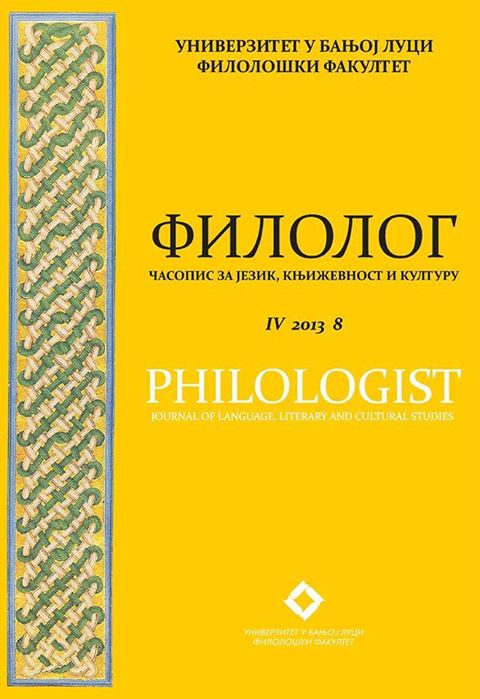Лингвистичка екоантропологија – могућности оснивања нове поддисциплине: Еколошка свест у фолклорном интервјуу
Linguistic Ecological Anthropology – Possibilities of Establishing a new Sub-discipline: Emergence of Ecological Awareness in an Interview with People from the Village of Batković
Author(s): Svetlana ĆirkovićSubject(s): Language and Literature Studies, Customs / Folklore, Sociolinguistics, Cultural Anthropology / Ethnology, Philology, Theory of Literature
Published by: Филолошки факултет Универзитета у Бањој Луци
Keywords: Folclore text; narrative; ecological awareness; ecological anthropology; Filip Madžarin; Batković; Semberija.
Summary/Abstract: The interviews, that took place in the village of Batković (the Republic of Srpska), were regarding linguistic and folklore field research, and revealed a very complex structure. These two topics are intertwined. The focus of the discussion shifts and the content of the narrative can be seen as heterogeneous. The paper illustrates two significant themes which dominate the narrative – ecology and the presence of oral tradition in everyday life. Ecological awareness can be discerned from the parts of the discussion about the canal in the village of Batković, which emphasized the degradation of the ecosystem of the canal, the pollution of the water in the canal, and the eventual extinction of some animal species. The narrative which displays the ecological awareness of the interlocutors from the village of Batković is characterized by the hybridization of the language codes. Thus, their ecological awareness is verbalized, on the one hand, by the usage of a folklore and dialectical linguistic means and, on the other hand, by the usage of scientific metalanguage. The hybridization of the language codes is the most explicit at the lexical level. The analysis of a transcript of one part of the discussion shows that linguistics as a scientific discipline can contribute to the umbrella discipline – ecology. Apart from ecological anthropology, political ecology, and ecocriticism, linguistic ecological anthropology could be incorporated into the eco sciences with its contribution in the form of exploring the articulation of ecological awareness and linguistic means by which ecological awareness is verbalized. In all transcribed fragments of the discussion in the village of Batković, the attention is drawn to the well known legend of Filip Madžarin, according to which Filip Madžarin built the canal in the village of Batković and anchored off there. By frequently referring to this legend, one can easily realize its presence in everyday life. The legend of Filip Madžarin is entwined with the other contents of the narrative, thus making the narrative structure very complex. Apart from the legend of Filip Madžarin, the discussion touched on the legend of Jerina the Cursed. The folklore narratives of Filip Madžarin and Jerina the Cursed demonstrate the mechanism of the emergence of oral tradition – affiliating the tradition with the epic hero and integrating it into the local community. By applying the linguistic and anthropological analysis of these narratives, which refl ect the ecological awareness of the interlocutors, the complementarity in directing the humanities towards ecological themes could be achieved. Aside from traditional culture and folklore where water and local hydrography occupy a significant place in everyday life, as well as in nostalgic recollections, they also deserve their place on the list of the research objectives of the humanities.
Journal: Филолог – часопис за језик, књижевност и културу
- Issue Year: 2013
- Issue No: 8
- Page Range: 287-306
- Page Count: 20
- Language: Serbian

